এবারের সাক্ষাৎকার সিরিজে আমাদেরকে সাক্ষাৎকার দিয়েছেন মোহাম্মদ ইব্রাহীম।তিনি মাদারিপুরের শিবচরের একজন কৃষক পরিবারে জন্মগ্রহণ করেছেন।সিভিল ইঞ্জিনিয়ারিংয়ে স্নাতক করার পর আইআইটি বোম্বেতে স্ট্রাকচারাল ইঞ্জিনিয়ারিংয়ে মাস্টার্স করেন। এরপর থেকেই গবেষণার প্রতি ভালোবাসা তৈরি হয় এবং বর্তমানে তিনি গবেষণার সঙ্গে যুক্ত আছেন।। আসুন আমরা তার সম্পর্কে জানি।
প্রথমেই আপনার সম্বন্ধে আমরা জানতে চাই?
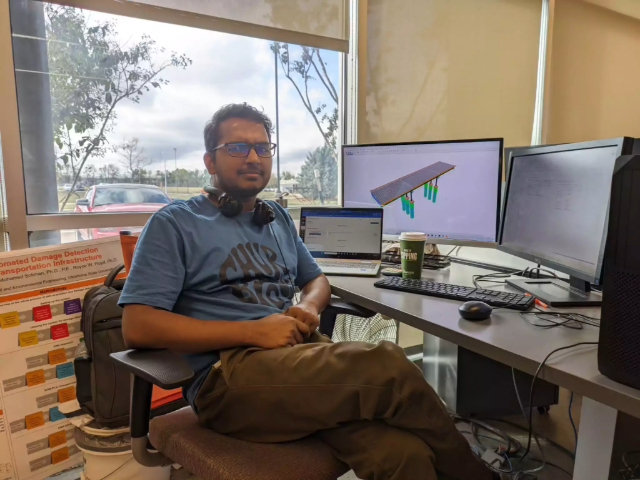
আমার জন্ম মাদারিপুরের শিবচরে। আমার বাবা-দাদারা সবাই কৃষক ছিলেন, তাই ছোটবেলা থেকেই কৃষি অফিসার হওয়ার স্বপ্ন ছিল। তবে পরবর্তীতে বিজ্ঞানের প্রতি ভালোবাসা জন্মায়, এবং সে কারণেই এই বিষয়ে চলে আসি। সিভিল ইঞ্জিনিয়ারিংয়ে স্নাতক করার পর ইচ্ছা ছিল সরকারি চাকরি করার, কিন্তু এরই মাঝে ভারতের বিখ্যাত আইআইটি বোম্বেতে স্ট্রাকচারাল ইঞ্জিনিয়ারিংয়ে মাস্টার্স করার সুযোগ পাই। বলা যায়, এরপর থেকেই গবেষণার প্রতি ভালো লাগা কাজ করে, এবং এখন সেই গবেষণার সঙ্গেই যুক্ত আছি।
আপনার গবেষনার বিষয় কি?
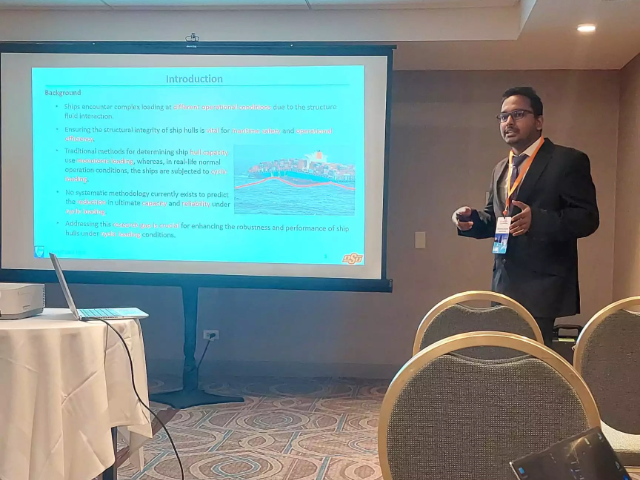
আমার গবেষণার বিষয় হলো অবকাঠামোর স্থায়িত্ব এবং বিশ্বস্ততা নিয়ে। পদ্মা পাড়ের মানুষ হওয়ার কারণে বন্যার প্রভাব খুব কাছ থেকে দেখেছি, বিশেষ করে ছোট ব্রিজগুলো বন্যার পরে আর ব্যবহার করা যেত না। সেই অভিজ্ঞতা থেকেই গবেষণা শুরু করেছি কীভাবে ব্রিজগুলো প্রবল বন্যার মধ্যেও স্থায়ী থাকতে পারে। আমার মাস্টার্সের গবেষণার বিষয়ও এটাই ছিল। এ নিয়ে একটি গবেষণাপত্র ইতোমধ্যে প্রকাশিত হয়েছে এবং আরেকটি শীঘ্রই প্রকাশিত হবে ইনশাআল্লাহ।
পিএইচডি-তে এসে এখন জাহাজের নির্ভরযোগ্যতা নিয়ে কাজ করছি। এটা অনেকটা জুয়ার মতো, যেখানে আমরা বিভিন্ন রকমের হাইপোথিসিস টেস্টিং করি। মিলিয়ন মিলিয়ন হাইপোথিসিস পরীক্ষা করে জাহাজের স্থায়িত্ব যাচাই করি, যাতে যে কোনো সম্ভাব্য পরিস্থিতিতেও জাহাজটি সুরক্ষিত থাকে।
আপনার গবেষনার কাজগুলি কিভাবে আমাদের উপকৃত করছে কিংবা করবে?
আমার গবেষণার কাজগুলি আমাদের নিরাপত্তা, অর্থনীতি এবং পরিবেশের জন্য গুরুত্বপূর্ণ ভূমিকা রাখছে এবং ভবিষ্যতে আরও উপকৃত করবে। ছোটবেলায় একটা গান শুনতাম “নদীর কূল নাই, কিনার নাই রে…”—এই কথাগুলো মনে পড়ে, বিশেষ করে যখন সমুদ্রে দীর্ঘ সময় কাটানোর কথা ভাবি। সাগরে বড় বড় ঢেউ, ঝড়, এমনকি তীব্র ঝুঁকি নিয়ে জাহাজ চলাচল করতে হয়, যা অনেক সময় প্রাণহানি, অর্থনৈতিক ক্ষতি, ও পরিবেশের উপর মারাত্মক প্রভাব ফেলে।
আমার গবেষণার মূল লক্ষ্য হলো কীভাবে আবহাওয়ার পরিস্থিতি পূর্বাভাস করে তা জাহাজের উপর প্রয়োগ করা যায়। এতে আমরা জাহাজের কার্যকারিতা বুঝতে পারব এবং এমন দুর্ঘটনা থেকে ভবিষ্যতে রক্ষা পেতে পারি।
গবেষনা কাজের বিশেষ কোন অভিজ্ঞতা কি আমাদের সাথে শেয়ার করবেন?
আমার গবেষণার কাজ মূলত কম্পিউটেশনাল অ্যাপ্লিকেশনের উপর ভিত্তি করে, এবং শুরুতে এই কাজগুলো নিয়ে বেশ ভয় পেতাম। এরকম এক জটিল বিষয়, যার ভেতরে কী ঘটছে তা সরাসরি দেখা যায় না—একটা ছোট্ট ভুল খুঁজে বের করতেও অনেক কষ্ট করতে হয়। প্রথমদিকে নিজের ওপর বিশ্বাস ছিল না যে আমি এই কাজগুলো ঠিকভাবে করতে পারব কিনা।
তবে আমার প্রফেসরকে বিশেষ ধন্যবাদ দিতে হয়, কারণ তিনি আমার ওপর আস্থা রেখেছেন এবং আমাকে সঠিকভাবে মূল্যায়ন করতে পেরেছেন। এখন এই বিষয়গুলো একটু কঠিন হলেও আমার মধ্যে একধরনের আনন্দের সৃষ্টি করে।
একজন বিজ্ঞানীর কি কি গুণ থাকা প্রয়োজন বলে মনে করেন?
আমি মনে করি, একজন বিজ্ঞানীর জন্য ধৈর্য এবং ভুল করার মানসিকতা সবচেয়ে গুরুত্বপূর্ণ। গবেষণায় প্রচুর ভুল করেই একসময় সঠিক সমাধান পাওয়া সম্ভব হয়। কারণ গবেষণা সহজ কোনো বিষয় নয়; এটি ভালো না বাসলে চালিয়ে যাওয়া কঠিন হয়ে পড়ে। বছরের পর বছর কাজ করেও কখনো সমাধান নাও পাওয়া যেতে পারে, তবুও সেই সাহস থাকা চাই। পাশাপাশি, কোনো ধারণা সফল হতে পারে আবার নাও হতে পারে—এই মনোভাব মেনে নেওয়ার মানসিক শক্তিও থাকতে হবে।
বাংলাদেশের তরুণ শিক্ষার্থী যারা বিজ্ঞানে কাজ করতে চায় – তাদের জন্য আপনার কোন ম্যাসেজ কিংবা বার্তা কি?
আমি বলব, যদি আপনার গবেষণার প্রতি ভালোবাসা থাকে, তবে আপনাকে আগে বুঝতে হবে গবেষণা আসলে কী। আপনি যদি মনে করেন, শুরুতেই আমি কাজ শুরু করে দেবো, তাহলে সেটা সঠিক সিদ্ধান্ত হবে না। প্রথমে অন্যদের গবেষণা পত্র পড়ুন, বিষয়গুলো বুঝুন—কি হচ্ছে, কেন হচ্ছে। এরপর আপনার পছন্দের বিষয়টি খুঁজে বের করে সেই অনুযায়ী কাজ শুরু করুন। মোটকথা, প্রচুর পরিমাণে গবেষণা পত্র পড়তে হবে এবং এর মাধ্যমে আপনার ভিত্তি তৈরি করতে হবে।
আপনার ইমেইল: [email protected]
আপনার লিংকডইন: https://www.linkedin.com/in/mohammad-ibrahim-osu/
আপনার ওয়েবসাইট, গবেষনাকাজের লিংক: https://mohamedsoliman.info/people
আমরা বিজ্ঞানী অর্গ এর পক্ষ থেকেমোহাম্মদ ইব্রাহীমকে জানাই অনেক অনেক শুভেচ্ছা ও অভিনন্দন। তিনি আমাদের নবীন গবেষকদের জন্য এক অনন্য দৃষ্টান্ত। আমরা তার সফলতা কামনা করি।
From flood destruction to ship durability: The story of a young researcher, Mohammad Ibrahim!
Tell us about yourself?
I was born in Shibchar, Madaripur. My family has a long history in farming, which inspired my childhood dream of becoming an agricultural officer. However, over time, my interest shifted towards science, which led me down a different path. After completing my bachelor’s degree in Civil Engineering, I initially aspired to secure a government job. But then I got an opportunity to pursue a master’s in Structural Engineering at the prestigious IIT Bombay in India. It was during this time that my passion for research truly developed, and I’ve been immersed in it ever since.
What is your research focus?
My research focuses on the sustainability and reliability of infrastructure. Growing up by the banks of the Padma River, I witnessed the devastating effects of flooding, particularly on small bridges that would often become unusable afterward. This inspired me to research ways to make bridges more resilient to extreme floods. My master’s thesis was centered on this topic, and I’ve already published one research paper, with another one on the way, Insha’Allah.
Currently, in my PhD program, I am working on the reliability of ships. This involves testing millions of hypotheses to assess ship stability under various conditions, ensuring that ships remain safe even in the most challenging environments. It’s a bit like solving a complex puzzle, where every piece is critical.
How do your research contributions benefit society?
My research holds significant potential for improving safety, economy, and environmental sustainability. A song from my childhood often comes to mind: “Nodir kul nai, kinar nai re…”—words that resonate with me as I think about spending long hours at sea. Ships must endure massive waves, storms, and high risks, which often lead to loss of life, financial damage, and environmental disasters.
The goal of my work is to predict weather conditions and apply that knowledge to improve ship performance and safety, ultimately preventing accidents in the future.
Any specific experiences from your research you’d like to share?
My research is largely computational, which initially intimidated me. It’s a complex field where you can’t directly observe what’s happening, and finding even a small mistake can be a daunting task. Early on, I doubted my ability to handle such challenges.
However, I am especially grateful to my professor, who believed in me and guided me appropriately. Today, despite the difficulties, I find immense joy in my work—it’s rewarding in ways I never imagined.
What qualities do you think a scientist should have?
I believe patience and the willingness to embrace mistakes are the most important qualities for a scientist. Research is all about trial and error—it’s through mistakes that breakthroughs occur. It’s not easy; if you don’t love what you’re doing, it can be incredibly difficult to continue. Sometimes, years of work may not yield any results, but the courage to persevere is essential.
Additionally, a scientist must be open to the idea that their hypothesis may fail, and they should have the mental resilience to accept such outcomes gracefully.
Do you have any message for young students in Bangladesh who want to pursue science?
If you have a passion for research, the first step is to truly understand what research entails. Jumping into it without preparation can be a mistake. Start by reading others’ research papers—understand the topics, the why and the how. Once you’ve identified your area of interest, begin building your foundation through extensive reading.
In short, immerse yourself in the literature—it’s the key to developing a strong foundation and discovering your path forward.
On behalf of Biggani. Org, we extend our best wishes and congratulations to Mohammad Ibrahim. He is a unique example for our young researchers. We wish him success.

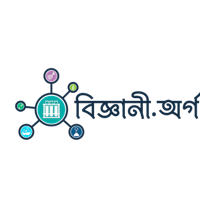
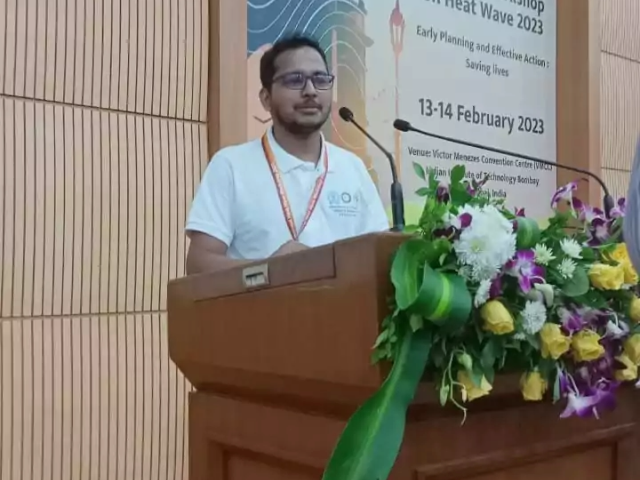

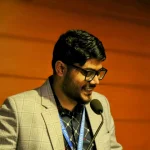

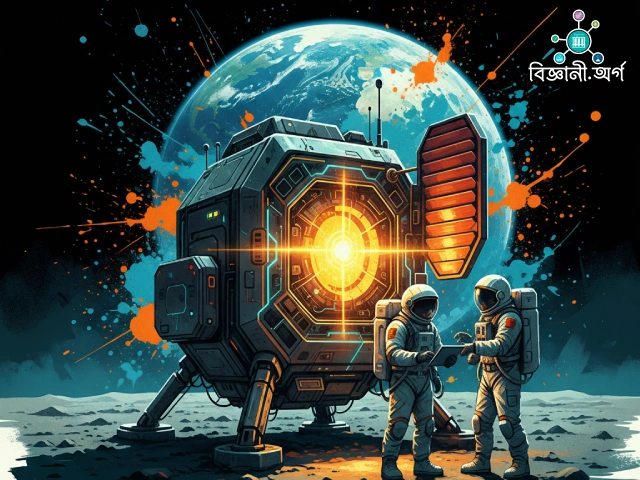
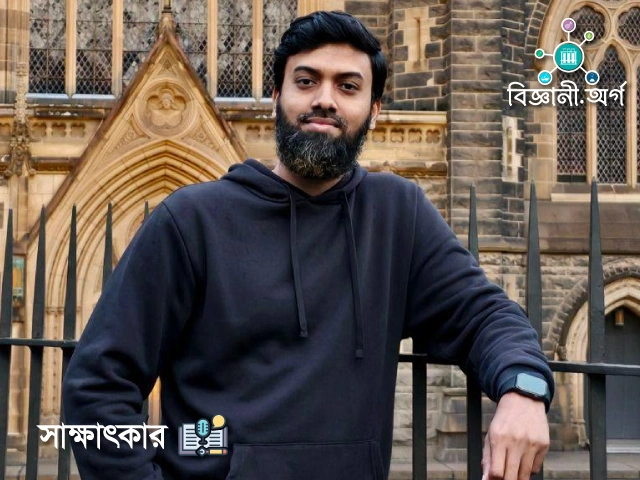
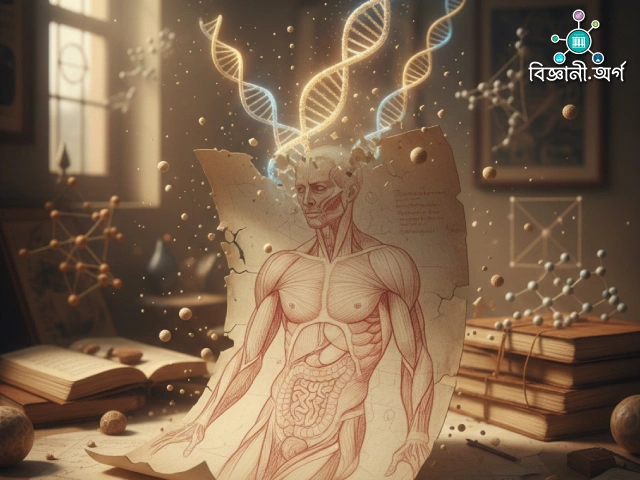

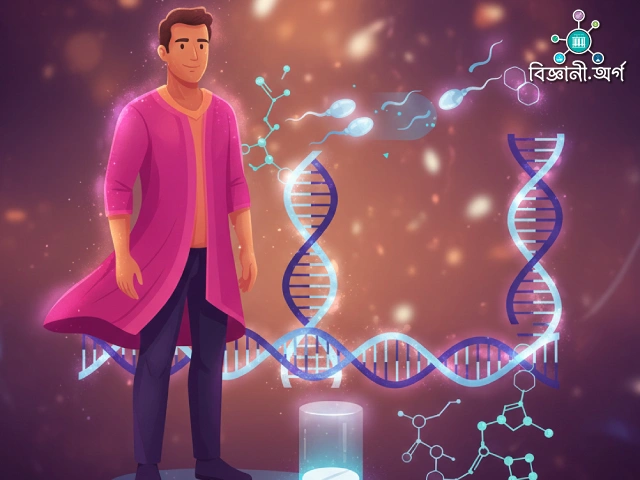
Leave a comment